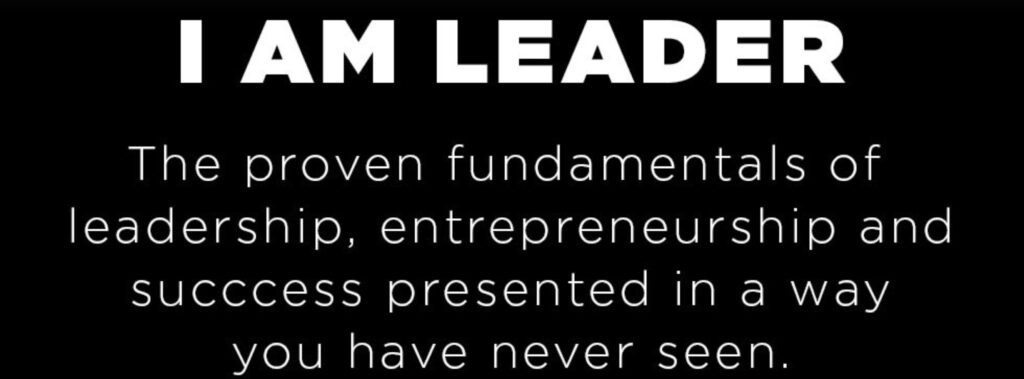Chris:
Today on the show, we talk about new tech turnover. Why over 60% are quitting in the first two years, we talk about Christians, weird fetish, and we play a game of would you rather, but this time I’m the one answering the questions and Mia ranks dealership jobs from easiest to hardest that in much, much more coming up on service drive revolution.
Chris:
Hello. I’m Chris Collins and this is Christian Lafferty and we have our beautiful guest Mia say hello to everybody, man. Hello? Hello. That was a nice little, uh, princess liked that too. Have you ever heard of the weird fetishes?
Mia:
I am an adult, so yes. Yeah.
Chris:
Stuff on the internet that maybe you don’t want people to see in your browser history. Maybe, uh, your buddy right here, Christian is a victim of a weird fetish,
Mia:
A victim, as in somebody fetishized you sure exactly where this is going on, so sure. Let’s go.
Chris:
Uh, what’s the weirdest fetish, like without being like, you know, I think a weird fetish is feet people are super into.
Mia:
Yeah, yeah. Um, furries. That’s a weird one. Oh yeah. That’s super weird.
Chris:
It’s super weird. Yeah. So he’s, he’s a victim of feat. Uh, what do you call it? Feeders. Feeders
Mia:
That somebody sneak a photo of your feet when you weren’t watching.
Christian:
No, he’s talking about feeding,
Chris:
Right? Yeah. We’re the fetishes that somebody wants to feed you so much that you gain weight and you’re only attractive. You’re attractive to them. Is that how it is?
Christian:
I think it’s way more about like, they think that if they feed you a lot and then you get bigger than no one else will want you. I actually think it’s it’s defense. It’s not offense. Are you insulting? No. The worst is clearly a real thing. I know.
Chris:
Like for the longest time, like he was like on a very strict, like working out two times a day, you just be like, where’s Christian. Oh, he’s out lifting weights. Like, um, and now he’s like eating a tortoise Flon, tamales, tamales, like anything with a carb and fat and cheese. Right? Yeah. It’s a lot. It’s a lot of carbs.
Christian:
It’s I can’t, uh, I can’t keep up with it. It doesn’t matter how many miles a day I do on the Peloton.
Mia:
Sounds like the dream though. Really? Like, it would be your
Chris:
Dream that you would have a spouse or a significant other that would just feed you
Mia:
Eat carbs all the time.
Chris:
What is the fetish called? Plumper. Yeah. Plumper,
Mia:
No word. It’s a weird word. I don’t like it. Plumper. Yeah. It’s like the word moist, you know, just makes it kind of cringe a little bit.
Chris:
You don’t want to say anything about it? You just you’re going with it. Yeah.
Christian:
Yeah. I think I’ll just ride with it
Chris:
At 1.3 hundred pounds, 400 pounds.
Christian:
You got a little ways to go before I get there. No, honestly the second that if I feel like I have to buy other clothes, it’s over, like I’m done. And then I will just go back to eating my salads. And
Chris:
Uh, do you understand that that’s going to have a huge ripple in your relationship because like you’re with somebody whose joy comes from the pleasure of feeding you and T th that’s, uh, they feel like they’re taking care of you.
Christian:
You can still feed me. She’s just going to feed me egg whites and spinach and not tamales. And
Chris:
That, um, you know, in the movie, uh, my big fat Greek wedding when the, uh, girls are, they’re like, Oh, mom, they’re vegan. And she goes, Oh, it’s okay if you do land,
Christian:
John’s like that as a manager.
Chris:
Yeah. There’s going to be no whites and spinach. It’s going to be covered in cheese, wrapped in a tamale.
Christian:
Right. So, all right. That’s great. So let me tell you a story. So a couple of weeks ago she makes me breakfast. Um, and we do eggs and bacon and tortillas, and she’s like, she hands it to me afterwards and it’s like this beautiful crispy tortilla. And she goes, baby, it’s healthy. I cooked it in the bacon grease. Yeah, this is so good.
Chris:
Okay. So we’re going to, we’re going to play, would you rather, so this is, uh, a little thing that we’ve done Mia before, but Christian, somehow he he’s trying to flip it and he’s gonna make me the victim of it where it’s probably funnier when I do it to you, but we’re going to see what your would you rather is, but I’m the victim. I’m the big,
Christian:
He’s the answer person. Okay. So, so Chris, let’s say that, that the world does
Chris:
Set up for, would you rather, it’s just like, you’re set up for a joke.
Christian:
Is it my only setup is the same setup that I do for on the personality trait. So, uh, yeah.
Chris:
All right. So
Christian:
World plays a funny, funny joke on us and, and you have to change careers and you’re forced into one of these three careers.
Chris:
So I, I have to do, I have to get a job as over saying, Oh yeah, I have to get a job. And my only choice three choices are one of these three,
Christian:
Your first choice, you travel around and clean. Port-a-potties travel around where, uh, just let’s say the greater Los Angeles area. And what does it pay? $13 and 86 cents an hour. Do all these jobs pay the same? Uh, ironically, yes. Yeah. So it’s
Chris:
Basically minimum wage. Yeah. You
Christian:
Might be a buck or two over, but I don’t know. Maybe if you do really good, you can go,
Chris:
I can move up. It can be the head port-a-potty
Christian:
That’s right. You can just be the person that picks up the blue, the blue solution. So clean and port-a-potties port-a-potties is number one. Next one is to be the fish scaler at Pike’s Pike’s place
Chris:
Coming in place. I scale them. And then they’re sold. Is that? Yes. That’s exactly right. That’s a full-time job. Full-time job. You’re always only fish all day
Christian:
Scaling fish all day. Okay. Then it pays $13, 1386 or the last one you are in charge of the drum room at guitar center.
Chris:
Ooh. I mean, that’s clearly the worst job now. I don’t
Christian:
Know if everyone would agree with you, Chris. So
Chris:
You might want to go into that. Uh, no. That’s like pure hell you imagine being the drum guy in a guitar center, like you work in the drum department, you do you know what kids come in to test out the drums and the drum department and guitar center? No, that was a great dramatic pause. Yeah. She’s staring me down. Um, kids that can’t afford a drum set that don’t know how to play all day long. Just if you’re ever bored driving around or something and you want to test out my theory just called guitar center and asked for the drum department and then hear the racket in the background. Like literally there’ll be like drum department and it’s like pots and pans falling down a stairwell constantly all day long. And you’re like, all day long,
Christian:
Constant, constant, uh, suffer from tinnitus and all that other stuff too.
Chris:
No, that’s a version of hell that I think a lot of people haven’t experienced have you, well, yeah, because there was a drummer I used to go in there all the time and it’s, you can’t even stand to be in there, let alone work there all day. Like you just look at those guys and it’s like, uh, like, you know, like when you see a girl with the guy sometimes, and she’s like blinking, like help, help. Um, I’ve been kidnapped. That’s not the guys behind the counter hit guitar center looked like, they’re like, why are they blinking like that? I don’t
Christian:
Need the 1386 that bad,
Chris:
You know, anywhere between like eight year olds and 15 year olds that can afford a drum set. But they go in there and pretend like they’re going to buy one all day and practice the route. And it’s just terrible. That stuff is meant to be practice. You need to work out that terribleness in a basement somewhere that only your parents who brought you into this world have to suffer through, but the poor guy gets Harson. Yeah. It couldn’t pay enough. Um, I love the idea that these are my only three choices. Like this is all I’ve accomplished in life. Right? I would say that I would, uh, pick the pike place. I’d scale fish.
Mia:
You get to be, you know, close to your old home, kind of.
Chris:
Well, I love the pike place market. One of the, one of the best times in my life was I live two blocks from pike place. Yeah. I used to walk down there constantly and get food.
Christian:
I can deal with the permanent smell of fish on me all the time. I think that that’s what I have a tough time with.
Chris:
You don’t know what happens. You get used to it pretty soon. You don’t smell the fish
Christian:
Kid growing up in a country like the pig farmers number. It never bothered them that they smelled like pigs. No, you just
Mia:
Bothered everybody else.
Chris:
Okay. Let’s um, segue to this list. Mia created, we don’t know the list, but we know the title of the list. Pretty funny. So Mia you’re ranking dealership jobs hardest to easiest or easiest to hardest, hardest, easiest to harder. So which jobs in a dealership? This transcends all departments. So detail, parts. Is there a body shop in this dealership? No, no body shop F and I
Mia:
Kind of, I’m not including every single like position. I’m just doing like the top 10, I think. So the top 10 and then down to one
Chris:
From easiest to hardest. Yes. Okay. What what’s number
Mia:
10. Number 10 is the owner.
Christian:
So does that mean that’s the easiest or the hardest
Mia:
Number 10 is the easiest. And so number 10 would be the owner number nine. Number nine is the general manager. You see where I’m going with this? I think you, I think you know where I’m going with this. He’s like, Oh great. Here we go. Uh, number eight, I have the sales manager.
Christian:
It’s two stages higher than the owner is the owner is the owners idiot kid on there. Owner’s idiot. Kid is number 14, actually
Mia:
Comes in and okay. Um, yeah. Number eight is sales managers finance. Okay. Seven. I have parts. What part of hearts? The parts .
Chris:
It’s like what people say all, all guys with beards look the same parts. People. It doesn’t matter. Well, they do all answer the phone the same way.
Mia:
So true. Oh man.
Christian:
Parts old. You, you think
Chris:
Parts manager is different than the guy in the back
Christian:
Back the bore guy slept
Chris:
Or the counter guy or the wholesaler? They’re all the same. They’re all the same in your eyes. They’re all created equal.
Mia:
They’re all created equal. Keep in mind. This comes from personal experience. So got to keep that in mind. Okay.
Chris:
Evaluate your list. This thing, solid run with it.
Mia:
You know what? You’re right. I’m right. All of you are wrong. It’s a claim list. Number five is the service manager.
Christian:
Okay. So the fifth easiest job,
Mia:
Fifth hardest part is service manager. Okay. Number four, I have porters and shuttle drivers
Chris:
Check, check,
Christian:
Just scoring it home. So being a Porter or a shuttle driver is harder than being service manager. Continue. What
Mia:
I knew. This was going to say, Oh, knew this is going to tell you,
Chris:
Are you trying to push people’s buttons? That’s the purpose here? I mean, it’s honest me as a little evil side. I am a Gemini and that’s me
Mia:
Duel. The Gemini symbol is a twin. It means you’d have dual personalities. That mean When I say dual personality, I don’t mean that I am like two different people. It just means that I’m adaptable and I can be very nice or I can be not today.
Chris:
Oh man. I wish I known the name of it. There’s this crazy doc writing on. studied today on the show. We talk about how you can get along the time post COVID rush before it’s too late. Yes. Mia visits us here in California shows how have service advisor pay plan as a protection mechanism. She says things which is better, is crazy. I think I told you this the other day finally gives me the cigar. He owes me that in much more today on service of their crimes and murder has a direct correlation with their abuses kids. And so she shows this one guy that murdered this couple and literally like took their body parts. It was drawing on the wall or whatever, like just super graphic and crazy. And you think in your head, like how could this human ever do this? And then they show the guy and he, he just kind of this unassuming guy he’s back.
Chris:
Literally it looks like a motorcross track. And I think at three or four, my beginning of that part wrong. But either way his mom would throw a boiling water in his back in weapon. Oh my gosh. Like over and over again, like the guy and he had two personalities and she would show her interviews, how they, they, uh, would come in and out and she could talk to the other one. And summons in those personalities are for a protection mechanism where the, the one is kind of protecting the real person show. And then she shows that that Ted Bonnie had psychotic are quitting in the first two in one time in court, Ted Bundy flipped into the other one and nobody caught it, but she caught it because Bundy abused by his grandfather in graphic me around. So that’s what I thought of when he shops split personalities. But that isn’t
Mia:
Mostly, I do a personality. The personality is different. Dual personality just means that I have an adaptable or adaptive personality.
Chris:
So you can adapt to different situations. And is, is that like, uh, cause you’re a very like social, uh, inviting person. Is that a part of that? Like more extrovert?
Christian:
Yeah. Do you consider yourself an extra
Chris:
Minute? Yeah. That makes sense. Yeah. Go ahead with your Juul personality.
Mia:
I can flip that and scare people too. So there you have it. Um, so yeah, number four was porters and shuttle drivers
Chris:
For involved shuttle drivers, whether you’re there or the giver you’re in best source of information, you’re accepting. They know who doesn’t call their customers back. They know if they know he’s steering, you’re not going to kill them
Christian:
And stuff. Nobody else knows. They know.
Mia:
Yup. Like the shuttle. Oh. Especially because the customers are probably venting to the shuttle driver. So the shuttle driver knows. Yeah.
Chris:
How long have you worked there? You gotta make sure you get the actual title for the service advisor to ask me to pay cash upfront.
Christian:
Did not mention anything. There’ve been paperwork and we underestimate, they only take cash
Mia:
And you have to just, you have to put it in my pocket. I don’t want to touch it. Yeah. All right. Number three, looptex.
Christian:
She’s doing, she is looking at us to see what kind of response. Oh yeah. The ridiculous things. I’m sorry. I didn’t mean to.
Chris:
So this list, this list is meant to, uh, provoke.
Mia:
It is, but it’s honest too. Like I genuinely do.
Christian:
So this is really how you, we’re saying
Chris:
That a loop things I’m worried about how by live tech. We’re assuming we’re not talking about a 50 year old loop tech to explain how so you’re talking about it early 20 year old kid has a harder job. It’s harder. It’s more pressure, more stress than a dealer or a general manager.
Mia:
I will get to why, because there’s a common denominator between these which probably already, but I won’t get to it and you’ll probably still disagree, but that’s okay. That’s okay.
Christian:
You know what? We’re talking a lot about, uh, psychology and the mental part of this whole thing like that. I’ve actually got a joke up there for all my mind readers.
Mia:
We can’t just tell them that you’re going to, yes, I can.
Christian:
Okay. I’m doing it right now. That’s really creepy
Chris:
For those listening. He’s just staring into the camera. You know, a lot of people just leave.
Christian:
Yeah. But they know the silence, the mind readers here, it’s not silent and continue on.
Chris:
Can we recap dealer general manager, Uber rating sales manager. She talks about how service advisors, salespeople. And that really means something scare tactics.
Mia:
Number three is lube techs. Number two, this is where it’s getting real spicy today on the show. This is where it’s really going to rile people up. He’s not alone. Well, I guess he could kind of be looped into him. Number two is technician
Chris:
It’s really mean when they say certain things I
Mia:
Can find out about ruining my
Chris:
Uber rating. It’s going to scare tactics to that man on service drive.
Mia:
Exactly. So the reason that my list is the way that it is, is because in my mind, the less you have to deal with customers, the easier your job is. And I know that sounds super pessimistic and like negative towards the customer. But I feel like a lot of people underestimate how difficult that can be. I think that is the hardest part of any job is customer service
Chris:
Me. And for the longest time, I have thought that the hardest job in a dealership is a sales person.
Christian:
Why?
Chris:
Because they start off with, you know, they’re a hundred percent commission. They, they don’t have built-in traffic. They have to go crazy. You know, a good sales person has to go out and create business. They’re always working seven days a week. They’re there until 11, depending on the store, they don’t have weekends. I mean, it’s not the kind of job where you raise a family in a normal way. Like, I mean service, we have some, you know, some degree of normalcy. It’s rare that service worked six days a week, every week, but salespeople literally, unless the state mandates that they’re closed on Sunday, they, they, uh, they could be working seven days a week constantly. And commission,
Christian:
I thought, I thought being an adviser was harder and being a sales person, but I don’t think either job’s easy.
Mia:
And that’s the thing. I’m not saying any of it’s easy. It’s just, what’s easier. But back to the whole sales person mindset, it just goes back to experience. Cause every dealership I’ve worked at advisors always work six days a week from open to close. So 12 hour days, six days a week, which is really difficult. So working and it was even longer than 12 hours. I was used to six 30 to seven o’clock at night, 6:30 AM to seven o’clock at night or later if I had to close the shop.
Chris:
Yeah. But for the most part, that’s not, that’s not the norm. And
Mia:
Man, I really just had a really negative experience. Who’s passed
Chris:
Sales. People are just getting started when people are getting off work. And so it’s not uncommon for a salesperson to be there until
Christian:
Yep. Especially if you got a deal. So, so the good thing about being a sales person is that, so at the place that I worked, we closed at nine. I was super happy to take the person that came in at eight 55 because they were leaving with a car in most cases. But by golly, you could be there from 9:00 AM to eight 55 and do nothing that was productive. And if you don’t put in that last three hours after closing, like you walked home with nothing. I think that that now yeah, pay wise, I feel like salesperson’s the hardest job because like it is absolutely what have you done for me lately as a service advisor, there’s a little more stability to the pay thing, but man, I saw so many salespeople do that, that zero to hero thing where they would have like a 15 or 18 car month and then they would sell three the next month. And like they’re trying to figure out how they’re going to pay their mortgage. Um, so that part of it’s pretty stressful. I would, I would personally put the salespeople higher on the list than they are, but I still do think I’m with you on the advisor thing is yeah,
Mia:
I didn’t really take pay into consideration. And I know it seems like that because I think the farther down the list, the less they get paid, well, not really techs and service advisors, you know, make more than some of the other people. Yeah.
Chris:
I just do these lists, these lists aren’t, it’s not really fair because it’s a different kind of stress. Like I can tell you when I, uh, well, the first dealership that I owned that was mine, um, you know, in the beginning, things were really, really rough. And I literally had to put payroll on my Amex and when you have a hundred employees and you don’t have the cash to make payroll, that’s a stress in a feeling, especially when you care about the people that work for you, that I don’t think any advisor or salesperson could ever in endear endure that sort of stress. Like imagine you need 150 grand to make payroll and you only have 50. Like it’s a, it’s a different kind of stress. So I think it’s all kind of relative, right? These lists are fun, but at the end of the day,
Mia:
It is relative. But it also, once again, depends on your experience because my experience of owners has been the complete opposite where they’re filthy loaded and they don’t care about the dealership at all. And they never even showed their face. Sometimes you don’t even know what they look like because they never even check in, uh, you know what I mean? So it all just depends on what you’ve experienced.
Chris:
That’s exactly the kind of gig. I don’t want, want to own a bunch of dealerships and nobody knows what I look like,
Mia:
But you should also know what’s going on with the dealership. And if you don’t
Chris:
Cameras are everywhere. Like visually I love sitting with dealers from their laptop. You’re like, what are you doing? You’re on Facebook, like looking at dirty pictures. And they’re like, Nope, I think five they’re controlling drones. Like, Oh, well the worst, the worst.
Mia:
I don’t know. I
Chris:
Thank you for doing the list. I thought that was very fun.
Mia:
See how many people I upset with them. You learn
Chris:
Some things about you
Mia:
Rolling his eyes, he didn’t
Chris:
Roll. And then she pointed it at her tattoo on her finger like that, which one’s that the dual insurance. Yeah, there was this article in automotive news that was sent to me that kind of sparked the idea of turnover for new technicians is usually about 60%. So in the first two years, depending on the car line, et cetera, the drive, but on average, it’s about 60% of new techs coming in in an environment where we’re losing two technicians for every new one coming in 60% of them will leave within the first two years. It’s really sad. It’s a, it’s a terrible batting average, right? And so this article in automotive news, um, it’s a couple of weeks ago now, new school solution for recruiting auto techs. And they’re talking about how magic Toyota in Edmonds, Washington kind of close to you. My neck Edmonds, Washington, um, hired their own full time trainer.
Chris:
So they were going from there moving into a building and they were going from 28 bays to 54 and they needed to hire techs. And they found that just hiring the traditional way wasn’t effective. And they were just either stealing from the competition or, you know, trying to hire, uh, texts that weren’t really committed to it. So they hired their own in-house trainer. They’re giving the technicians $8,000 in tools up front. They lease them back from the dealership for $25 a week for four years. At which point they own them. If they leave or they own them for a cost of 5,200, if they leave the tools, go back to the, to the dealership. They also created a thing where if they, they up-sold specific items like cabin filters, wiper blades, alignments tires, they would give them 20, the $25 a week towards our tools was forgiven.
Mia:
Hmm. Oh, that’s really clever.
Chris:
Yeah. Right. I thought that was the, probably the most clever part of it, um, all together. So when we, when we talk about the turnover, why do we think that kids that decide, Hey, I want to be in technician. And then a couple years later, don’t want to be in technician anymore. What is causing that? Because there, there is some sort of commitment to it. You don’t decide you want to be a technician most of the time and then change your mind just because something has to be causing it to that degree.
Mia:
Yeah. I would say it’s probably boils down to false expectations when they actually go into the workforce, whether they are leaving school, like a vocational school or any sort of training, maybe they’re being promised, something that they’re not getting. What do you think?
Christian:
I think that a really, what we fail is to give our technicians coming in two things. One is the career path. Like we’re not telling them, okay, so you’re coming in, you’re going to start for three months. You’re going to do this type of work from three to six months, you’re going to do this type of work and they get to see the progression and
Chris:
Everything like that. Like the vocational school
Christian:
Level. Yeah. Whatever we need to. Well, I think that the vocational schools and the dealers have to get on the same page for sure. Or independent repair shops for that, for that matter too. So it’s the same either way, but the vocational schools and then the end user has to be telling the same story. My belief is right now, they’re not on the same page. And they have to really, really work together because I think that is an industry we have to recognize is that we need to do something to attract people in. I love what you said about that dealers, because the first thing that kind of came to my mind was that’s a lot like a scholarship right now in the state of Illinois, back in the nineties, just to kind of give you an idea. They had a real shortage of special education teachers.
Christian:
So what they did is they offered scholarships where if you went to school and you got a degree in special education, and then you worked for two years afterwards, they paid for your whole school. They forgave the whole thing. And that’s what that made me think of. And then all of a sudden what happened in the stale and where they didn’t have as many special education deficiencies and teachers. So this is a very similar program to that. And then the other thing that I think that we don’t do a good enough job with, with the people coming into the industry, as we don’t give them that sense of like, what, what, what do they contribute? Like how do they belong? What’s the purpose for them doing what they do? Like they’re part of something special and we don’t even tell them that. So I think those are the things that are missing.
Chris:
Yeah. I think, um, most indicators would say that at the, the service drive level, the top reason why those kids are disenchanted is because they don’t see a career path. So I think quick lubes are the biggest contributor to this because we, we have seen a change in the turnover by putting the technicians in the shop with the regular techs and pairing them up with like a mentor. Right? Because if you come into a quick lube and all you’re doing is oil changes all day. For a couple of years, you you’re never doing breaks. You’re never learning anything. You never see a path for advancement. You get disenchanted. Right. So how we set up quick lubes, we need to take into consideration the, the career path of the kids we’re putting into the quick loop, right? Yeah. How do they see it? How do if they come in every day and they’re doing this, do they see a future?
Chris:
Or does this feel like a dead end? Does it feel impossible? Right. And there’s a lot of decisions that have to be made there about investing in tools and you know, going flat rate and those sorts of things, which they’re looking at the other techs in there, they’re thinking, Oh, that’s unobtainable or that they’re miserable. So why would I want to do that? You know, there’s probably a lot of things that play into that. The second one is the, the boss. Like most of the time they feel like their boss doesn’t genuinely show interest in them or care about them. And I think a lot of times we have a generational gap there. So we’re gonna have a baby. Boomer is a manager with a gen, what is it? Gen Z millennial, one of the two. And the, you know, the baby boomer that older manager is managing those kids.
Chris:
Like they were managed. But unfortunately things have progressed to the degree that that doesn’t work anymore. You have to manage them from their perspective and you have to learn some new tricks. You have to become a better leader and spend more time and understand them because to some degree they con they might come off as entitled, but you also might be misreading what entitlement is to them, right? What they expect from an employer to you and your generation and time was entitlement to them. It’s just showing up. So there’s a gap there that I think as leaders, we have to close that gap. They’re there. They’re not developed enough to do that on their own. We, we have to get them to care before we can get them to learn, right? So we have to show genuine interest in them. We have to spend time with them. We have to understand their wants and needs. And so that’s a big part of it is the leader and money is lower on the scale. Usually money is about four.
Christian:
It’s funny. Cause everybody thinks that’s the number one, but it’s not,
Chris:
No one what’s crazy is they can make a lot of money being in tech. They’re just not shown the path and they don’t believe it. Right. And so they’re, they’re sold this bag of goods going into school and they think it’s one thing and it ends up being something else when they get out, they show up at the dealership and then you have this baby boomer manager treating you like you’re entitled and just get to work. And you, you know, you don’t know what you’re talking about, kid. And they’re used to being told that they’re great at everything. And they always win and they always get a prize they’re special, no matter what. And so the more we tell them, they’re not special. Isn’t doing us any good. We, we have to understand them and why they want to feel special and how they feel special. And then we got to harness that into mentoring them into becoming adults, right. Taking boys and making them men or girls and making them women in that scenario. But most of the time, we’re, we’re just pushing them back into their little rabbit hole.
Christian:
Yeah. Like a sit down and shut up kind of mentality. Yeah,
Chris:
Yeah. And get to the quick loop. And so then, you know, you have your least talented people touching the most customers in a quick loop, which is a recipe for disaster every time. And I don’t understand why we’re so committed to that model when you can achieve the customer experience that we want without running everything through these young kids and just burning them out. Cause burnout isn’t is another thing. Like they’re, they’re making a very low wage killing themselves and they just, they CA they can’t see themselves doing this, the rest of their life. We have to, we have to slow it down and kind of have a more strategic approach.
Christian:
Yeah. I think it’s hard. You guys agree with that? Yeah. A hundred percent, you know, we were talking a little bit about, uh, about crazy people. Like why, why are you smiling already about like Bondi and everything? Smiling. Oh yeah. His eyes. Okay. So yeah. The, did you hear about that lunatic that, uh, won the tour de France? No. He took the psychopath. I shouldn’t have taken a drink. That was my fault. I shouldn’t have taken a drink
Chris:
Today. So dealers have the hardest job. We got to learn how to understand our millennials and our gen Zs. We got to create a career path for them and that I would rather skill fish than work in the drum department at guitar center. But I would wish that on my enemies. Okay. Good to know. Yeah. That’d be great. Thanks you guys. Thanks for tuning in. And we will see you next time on service drive revolution. Thanks so much for watching this episode of service job. We’re uploading new stuff every day. So make sure you subscribe and click the bell icon so you don’t miss out. If you have a question you’d like us to answer on the show. Call eight three, three, three, ask SDR. And we’ll answer your question on the show. That’s eight three three three. Ask SDR for special deals on our books and training head over to offers dot Chris Collins, Inc com that’s offers dot Chris Collins, Inc com I’m Chris Collins, and I’ll see you in the next video.










